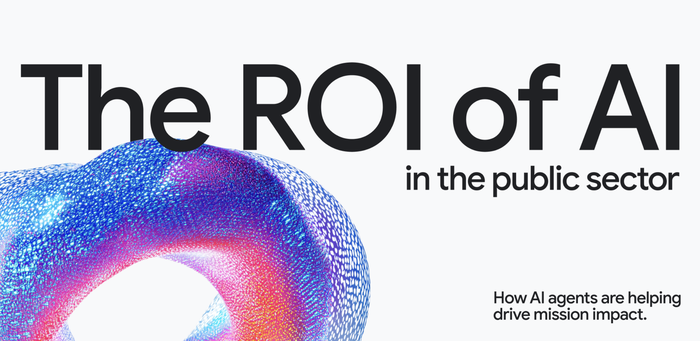Google and the National Science Foundation expand access to cloud resources
Katie Berlent
Strategy and Operations Lead for Education, Google Cloud
As part of our commitment to ensuring more equitable access to computing power and training resources, Google Cloud will contribute research credits and training to projects funded through a new initiative by the National Science Foundation (NSF) called the computer and information science and engineering Minority-Serving Institutions Research Expansion (CISE-MSI) program. This program seeks to support research capacity at MSIs by broadening funded research in a range of areas supported by the programs of NSF’s CISE directorate. The research areas include those covered by the following CISE programs:
- Algorithmic Foundations (AF) program (Program Webpage);
- Communications and Information Foundations (CIF) program (Program Webpage);
- Foundations of Emerging Technologies (FET) program (Program Webpage);
- Software and Hardware Foundations (SHF) program (Program Webpage);
- Computer and Network Systems Core (CNS Core) program (Program Webpage);
- Human-Centered Computing (HCC) program (Program Webpage);
- Information Integration and Informatics (III) program (Program Webpage);
- Robust Intelligence (RI) program (Program Webpage);
- OAC Core Research (OAC Core) program (Program Webpage);
- Cyber-Physical Systems (CPS) (Program Webpage);
- Secure and Trustworthy Cyberspace (SaTC) (Program Webpage);
- Smart and Connected Communities (S&CC) (Program Webpage); and
- Smart and Connected Health (SCH) (Program Webpage).
For this program, CISE has started with a focus on MSIs, which include Historically Black Colleges and Universities, Hispanic-Serving Institutions, and Tribal Colleges and Universities. MSIs are central to inclusive excellence: they foster innovation, cultivate current and future undergraduate and graduate computer and information science and engineering talent, and bolster long-term U.S. competitiveness. This initial round of proposal applications are due by April 15.
NSF funds research and education in most fields of science and engineering and accounts for about one-fourth of federal support to academic institutions for fundamental research. Since 2017, we’ve been proud to partner with the NSF to expand access to cloud resources and research opportunities. We provided $3 million in Google Cloud credits to the NSF’s BIGDATA grants program. We committed $5 million in funding to support the National AI Research Institute for Human-AI Interaction and Collaboration. We also have an ongoing commitment to facilitate cloud access for NSF-funded researchers as one of the cloud providers for the NSF’s CloudBank.
Digging into the details: a Google/NSF Q&A
For more on this partnership, we spoke to Alice Kamens, strategic projects and program manager for higher education at Google, and Dr. Fay Cobb Payton, program director in the NSF’s CISE directorate, to explain why this new CISE-MSI funding initiative is so important.
Can you explain what drove this new program?
Payton: At NSF, we assessed our award portfolios and recognized that we could do better in terms of the number of minority-serving institutions engaged through the various research programs offered by the CISE directorate. In 2019 and 2020, we held a series of CISE-MSI workshops to talk to HBCU, HSI, and TCU faculty about how we could better support them. It was really community-driven rather than a top-down approach.
Kamens: At the same time, we at Google were assessing our research funding initiatives and noticing the same under-representation of minority-serving institutions in our programs. We wanted to make sure our resources were reaching researchers and faculty at MSIs. That’s when we heard about the NSF’s forthcoming MSI-RE program and met with Fay to see how we could help expand the program’s capacity.
Payton: On the basis of many conversations with my colleague, Deep Medhi, program director for the CloudBank project, and CISE leadership including Erwin Gianchandani, NSF’s deputy assistant director for CISE, as well as Gurdip Singh, division director for Computer and Network Systems, we decided to focus on building research capacity and research partnerships within and across MSIs. Building on existing CISE partnerships, we wanted to create pathways to expose and train future generations in core research.
What are the main benefits for MSIs and researchers?
Payton: We are offering about $7 million in funding to support researchers with a focus on specific CISE programs named above and in the CISE-MSI solicitation. This program encourages cross fertilization, either across institutional types and researchers, or across faculty who may not get a chance to engage because of their workloads at MSIs, particularly those with a heavy focus on teaching.
Kamens: Google will provide Google Cloud credits for up to $100,000 per Principal Investigator (PI), as well as training worth $35,000 in live, instructor-led workshops. These matching credits expand the total award amount each PI can access, while the workshops cover the fundamentals of cloud technology, advanced skills, and curriculum and training to help faculty bring the cloud into their courses.
What impact do you expect it will have now–and down the road?
Payton: In the short term, a first cohort of about 10 to 15 proposals will be funded this year. In the longer term, we also want to foster increased engagement with researchers across their careers, beyond simply writing proposals and receiving grants. There's a breadth of opportunities for science at NSF, such as CAREER awards, computing workshops, and review panel service. Establishing relationships with program directors really matter. Through a continued series of CISE “mini-labs,” we are working to better enable the relationship-building among MSI researchers and CISE program directors.
Kamens: At Google we often hear from researchers that the ability to use cloud computing to get an answer to a question in hours rather than days can fundamentally shift the way that they conduct research. Our goal is to accelerate time to discovery and cutting-edge research in academia. It's critical to us that all researchers, regardless of institution type or size, have access to the resources they need, and can harness Google Cloud as they see fit to help accelerate their research.
What’s around the next corner?
Kamens: In the next few years I think the cloud will be a driver for so much that we do. From researchers and employees to teachers and students, we will all need to become fluent in the power of the cloud.
Payton: This is just the beginning of our outreach. I'd like to think that this solicitation is version 1.0. We've already come up with ways to improve the next round!
To learn more, visit the NSF’s Computer and Information Science and Engineering Minority-Serving Institutions Research Expansion program solicitation and apply by April 15th. Review NSF’s Dear Colleague Letter announcing this partnership. You can download an informational webinar as well as proposal development workshops for applicants through the American Society for Engineering Education. To estimate cloud computing costs, consult the CloudBank resources page.
Google Cloud has also expanded its global research credits program for qualifying projects in the following countries: Japan, Korea, Malaysia, Brazil, Mexico, Colombia, Chile, Argentina, and Singapore. To start or ramp up your own project, check out our application form.
Disclaimer: The inclusion of NSF in this blog post is informative of a funding opportunity only. It is not intended to endorse the company, or its products or services.



